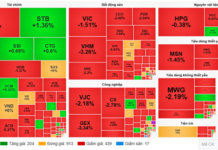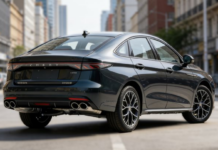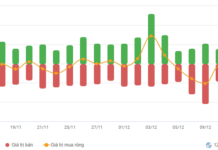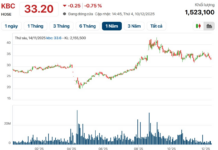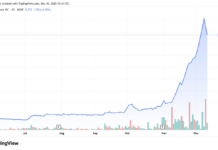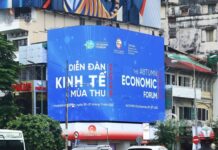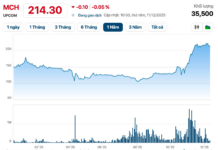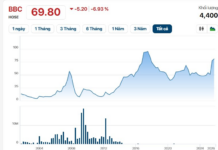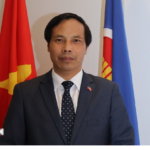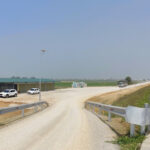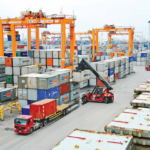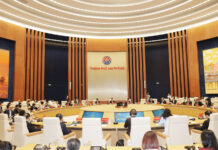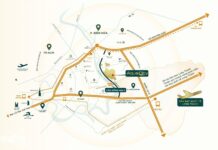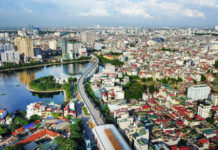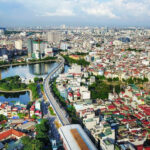In his report to the National Assembly on the socio-economic development plan for 2024 and the proposed plan for 2025, delivered in October, the Prime Minister highlighted Vietnam’s significant progress in economic development. The country is estimated to have achieved a GDP growth rate of approximately 6.8-7% in 2024, striving to reach and exceed 7%, surpassing the National Assembly’s target of 6-6.5%.
Meanwhile, the World Bank, the Asian Development Bank (ADB), the International Monetary Fund (IMF), and several other international organizations have recognized Vietnam as one of the few high-growth countries in the region and the world.

A crucial factor driving Vietnam’s economic growth has been the significant development of its transportation infrastructure. As Prime Minister Pham Minh Chinh remarked, “One of the most notable breakthroughs of 2024 is the development of infrastructure, especially transportation infrastructure such as the North-South Expressway project.”
Therefore, the commencement and operation of several key transportation projects during 2024 were of paramount importance and urgency for the entire economy. The most prominent testament to the government’s strategic vision is the North-South Expressway East project, a key national transportation project with a total investment of approximately 147,000 billion VND (equivalent to over $6 billion) and a total length of about 723 km. The project broke ground in January 2023.
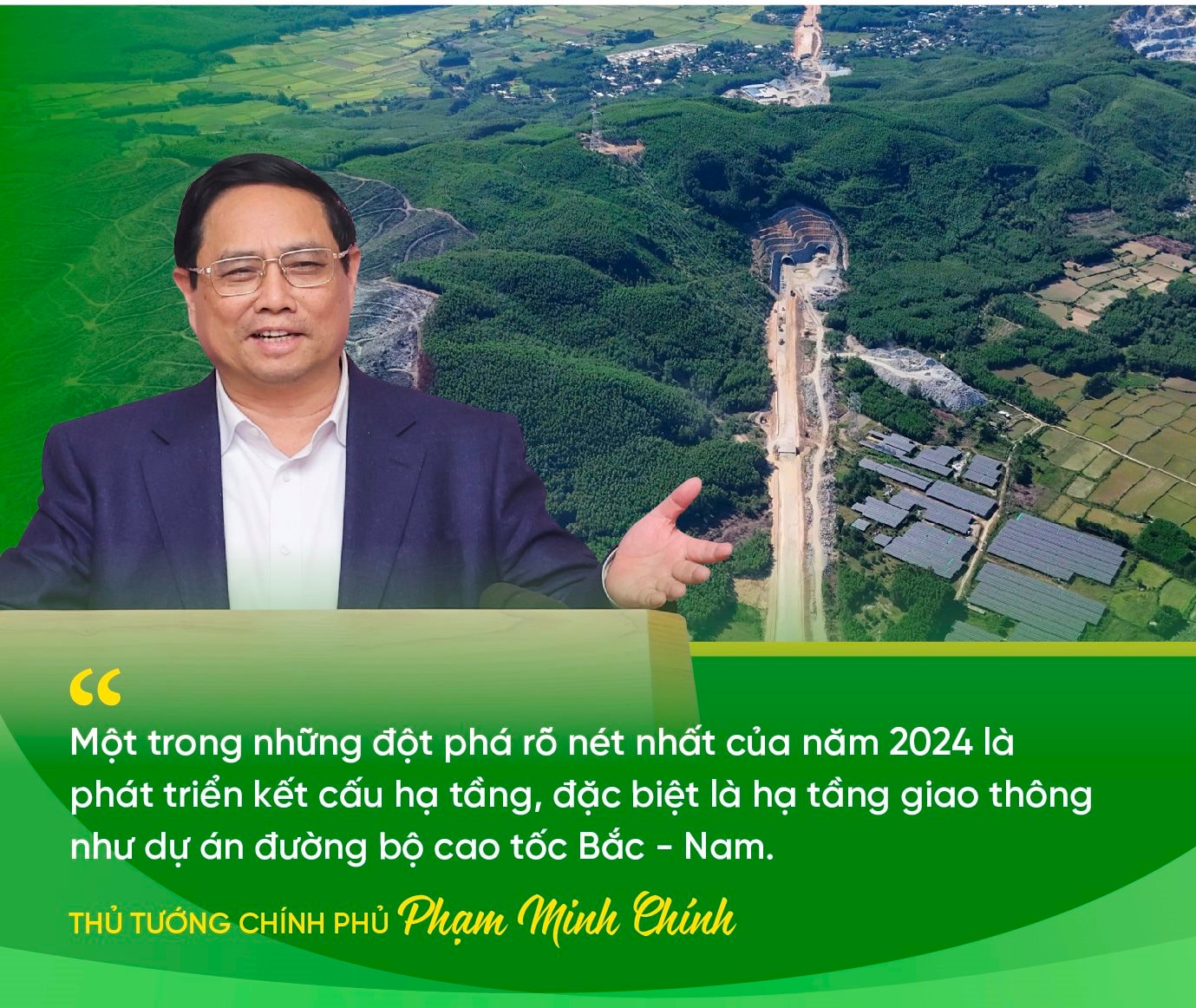
Since the beginning of 2024, the Ministry of Transport has commenced work on seven road projects belonging to the expressway line, while also completing and connecting all 653 km of Phase 1 of the project. This has significantly contributed to increasing the total length of the country’s expressway system to over 2,021 km.
In reality, the construction process encountered numerous challenges, but the government worked closely with local authorities to address them. They also directly inspected and supervised the progress of crucial national projects, embracing the spirit of “3 shifts, 4 teams,” “overcoming the sun, winning against the rain,” “working through holidays, festivals, and Lunar New Year,” and “only discussing how to do it, not whether to do it.” This determination ensured the earliest completion with the highest quality.
Notably, in August 2024, the Prime Minister launched a peak emulation campaign titled “500 Days and Nights” to complete 3,000 km of expressways. Responding to this movement, Mr. Le Quyet Tien, Director of the Department of Investment Management (Ministry of Transport), stated that “this campaign has witnessed many positive changes on construction sites.”
It’s not just about slogans; the disbursement of funds for the North-South Expressway projects has been a bright spot. By the end of October 2024, the estimated disbursement for the North-South Expressway East project phase 2021-2025 reached 26,496 billion VND, equivalent to over 70% of the plan. This reflects the resolute implementation of strategic infrastructure projects.
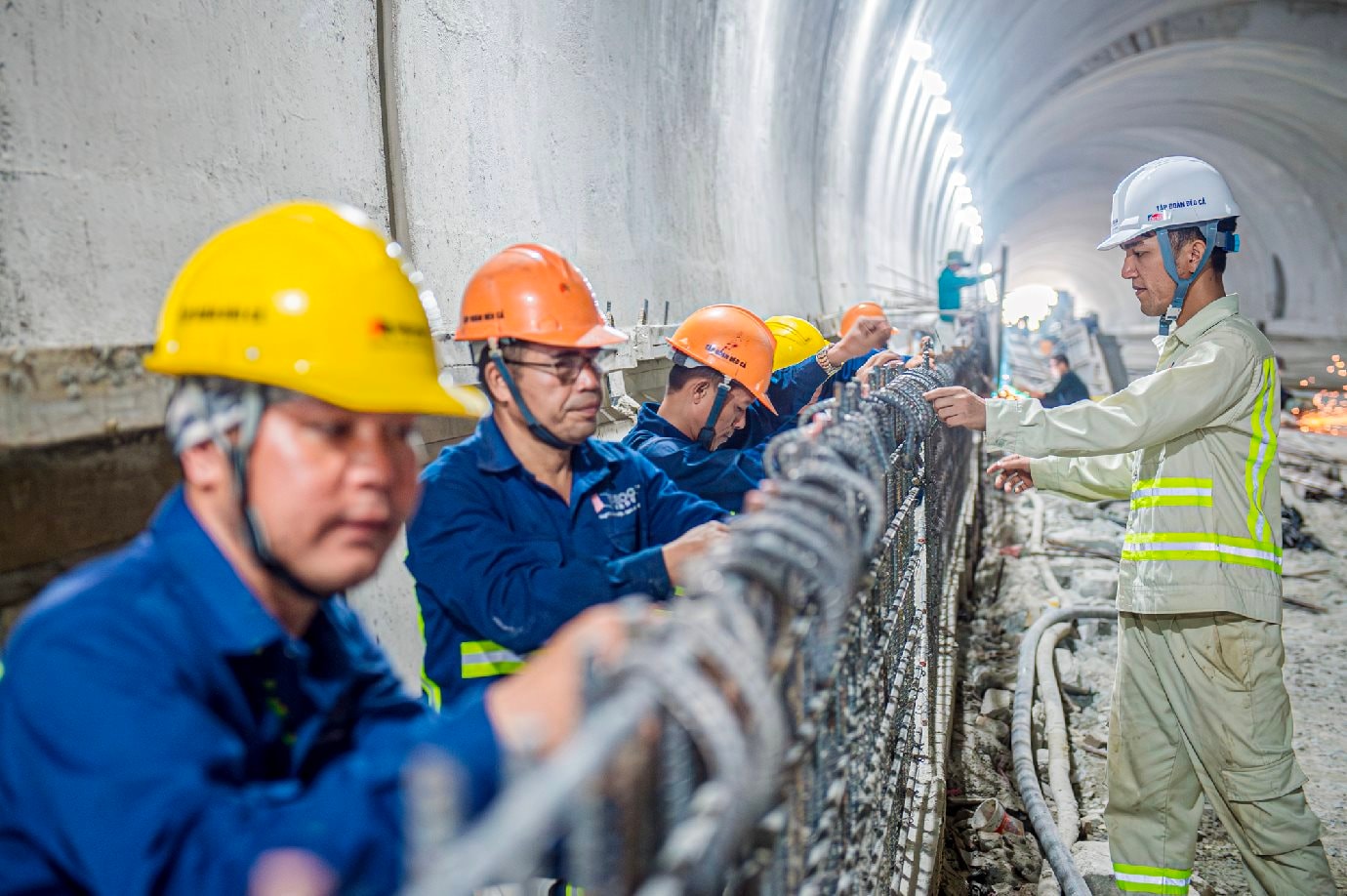
To date, many projects with large implementation values have exceeded their schedules and registered to shorten their completion times by 3 to 6 months. These include Bãi Vọt – Hàm Nghi (61%), Hàm Nghi – Vũng Áng (60%), Vũng Áng – Bùng (68%), Bùng – Vạn Ninh (62%), Vạn Ninh – Cam Lộ (59%), Vân Phong – Nha Trang (76%), Hoài Nhơn – Quy Nhơn (53%), Quy Nhơn – Chí Thạnh (51%), and Chí Thạnh – Vân Phong (59%).
In the future, with the completion of an additional 1,200 km of expressways, the goal of reaching 3,000 km of expressways by 2025 will become a reality, paving the way for breakthroughs in transportation connectivity.

In the long term, the North-South High-Speed Railway super-project, currently in the advanced stages of implementation, promises to bring about significant changes and contribute to consolidating the country’s position. Vietnam is currently among the top 34 largest economies globally and is ranked in the top 20 in terms of trade, with a projected GDP growth rate of 7% and foreign investment attraction of $35-40 billion in 2024.
For Vietnam to have more room for development, the Prime Minister emphasized the need to focus on iconic projects with the potential to “turn the tide and transform the state.” A prime example is the North-South High-Speed Railway project.
According to Dr. Majo George, a lecturer at RMIT University Vietnam, “By entering the high-speed railway sector now, Vietnam can learn from the experiences of those who went before and its neighbors, avoiding costly pitfalls and maximizing efficiency. This will contribute to strengthening its position as a regional logistics powerhouse and enhancing its role in global trade.”
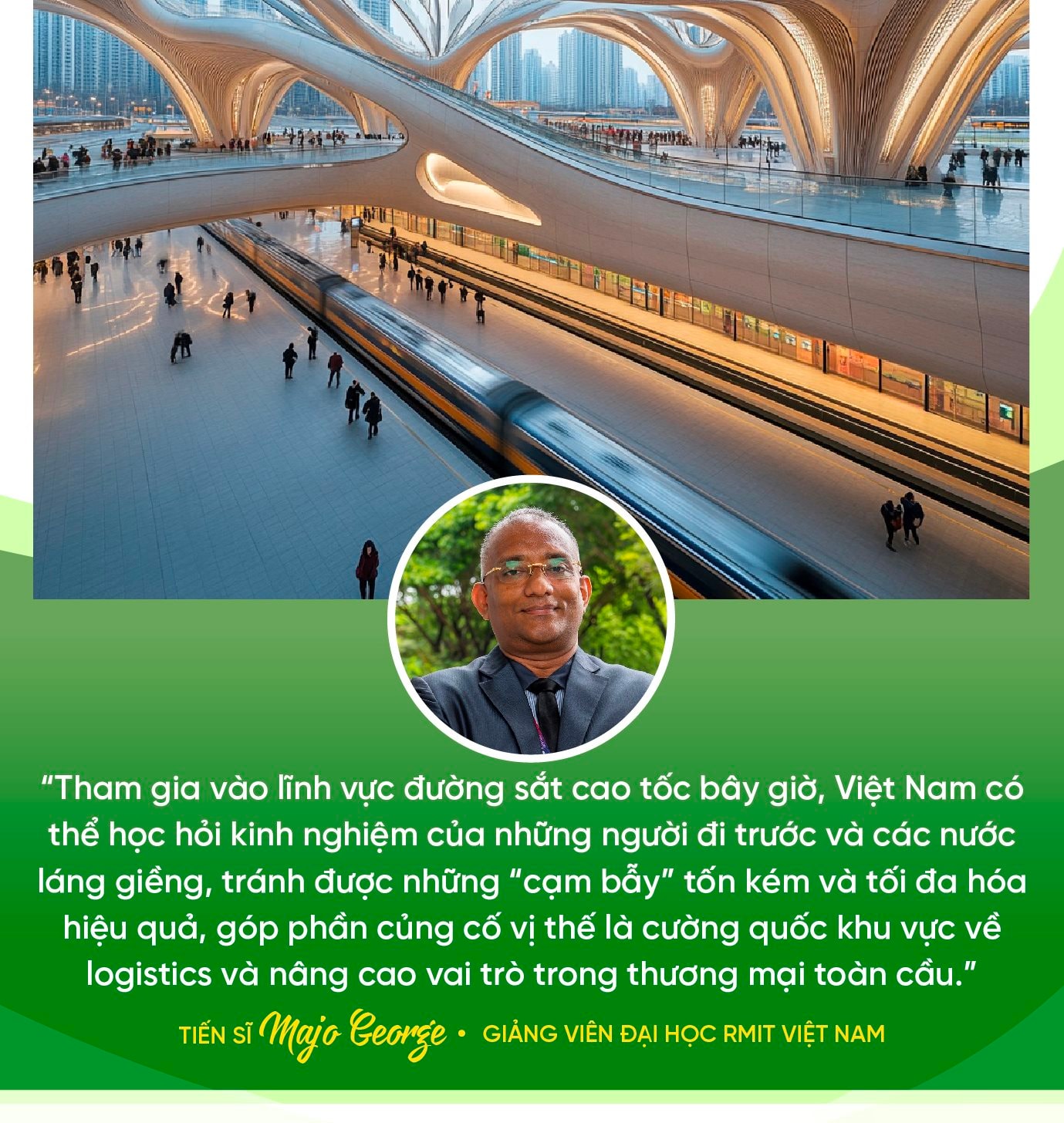
In late November 2024, with the approval of the investment policy for the North-South High-Speed Railway project, Vietnam officially laid the foundation for an iconic project, marking a significant transformation in transportation infrastructure development.
With a total investment of over $67 billion, this 1,545 km long line will connect 20 provinces and cities from Hanoi to Ho Chi Minh City. Upon completion, the travel time between the country’s two largest economic centers will be reduced from over 30 hours to just 6 hours, assuming a design speed of 350 km/h.
In reality, the preparation process for this project demands intense focus. Therefore, Vietnam has been actively promoting the North-South High-Speed Railway project by exploring cooperation with international partners and creating favorable conditions for domestic enterprises to participate.
In September 2023, before the investment policy for the North-South High-Speed Railway project was approved, on the occasion of attending the 43rd ASEAN Summit and related conferences in Jakarta, Indonesia, Prime Minister Pham Minh Chinh met with the Japanese Prime Minister and requested Japan to study the possibility of supporting Vietnam in developing the North-South High-Speed Railway project.
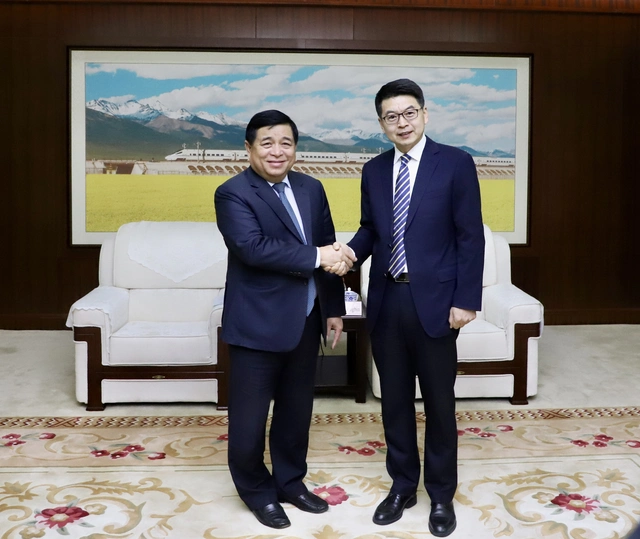
Prime Minister Pham Minh Chinh met with the Japanese Prime Minister and requested Japan’s support for the North-South High-Speed Railway project.

Minister of Planning and Investment Nguyen Chi Dung exchanged ideas with the Director of the China Railway Bureau, Mr. Phi Dong Ban, on the development of high-speed railways.
Additionally, during a working trip in March 2024, Minister Nguyen Chi Dung led a delegation from the Ministry of Planning and Investment to Beijing and Shanghai, China, to exchange and discuss experiences in constructing high-speed railway lines.
During his working program in Nanning, Guangxi, China, in September 2024, the Prime Minister welcomed Chinese enterprises to participate in implementing high-speed railway projects in Vietnam through appropriate forms. He requested the corporation to coordinate with relevant Vietnamese agencies to find feasible and effective solutions.
Notably, “the Party and Government’s viewpoint is to give maximum priority to domestic enterprises in all fields, from consulting, construction, to material production, and the railway industry… Therefore, the Ministry of Transport’s research has proposed very specific mechanisms and policies with incentives for domestic training institutions to cooperate with foreign partners in terms of curricula, teachers, and lecturers for early domestic training or sending them abroad for training in specific railway specialties,” said the Director of the Railway Project Management Board (Ministry of Transport).
This demonstrates that the North-South High-Speed Railway is an ambitious infrastructure project with a large scale, requiring careful planning and serious implementation. Dr. Majo George shared, “For effective development, Vietnam can divide the project into phases or regions and utilize international expertise for each part. For example, Japan, with its high-speed railway technology, could oversee one segment, while Germany, China, South Korea, Singapore, and India could take on other segments based on their technical strengths and logistics capabilities. This approach not only diversifies international participation but also promotes financial, technical, and sustainability collaboration.”

It is evident that Vietnam is undergoing a breakthrough phase in transportation infrastructure development with two key projects: the North-South Expressway and the North-South High-Speed Railway. These projects will contribute to reducing logistics costs and enhancing the country’s competitiveness.
Currently, Vietnam’s logistics costs account for about 20% of GDP, higher than the global average of 10-12%. The completion of 3,000 km of expressways by 2025 and the implementation of the entire North-South High-Speed Railway project, with a total investment of over $67 billion, will help shorten travel time and reduce transportation costs.
The North-South Expressway Phase 2 (2021-2025) will not only reduce the burden on existing arterial routes like National Highway 1A but also create a network connecting key economic regions from North to South, increasing regional and local economic efficiency.
Additionally, the high-speed railway, with its high speed and significantly reduced travel time between the country’s two economic centers, will facilitate business and import-export activities and boost inter-regional trade.
Socially, these two projects are expected to create millions of new jobs, both during construction and operation. The North-South High-Speed Railway project alone is estimated to generate 200,000 jobs. Moreover, during the investment phase, the construction market for the North-South High-Speed Railway is valued at approximately $33.5 billion. If we consider the entire national railway system and urban railways, the construction market is estimated at $75.6 billion, while the market for vehicles and equipment is about $34.1 billion, according to the Ministry of Transport. This will drive the development of supporting industries and contribute to the country’s sustainable economic growth.
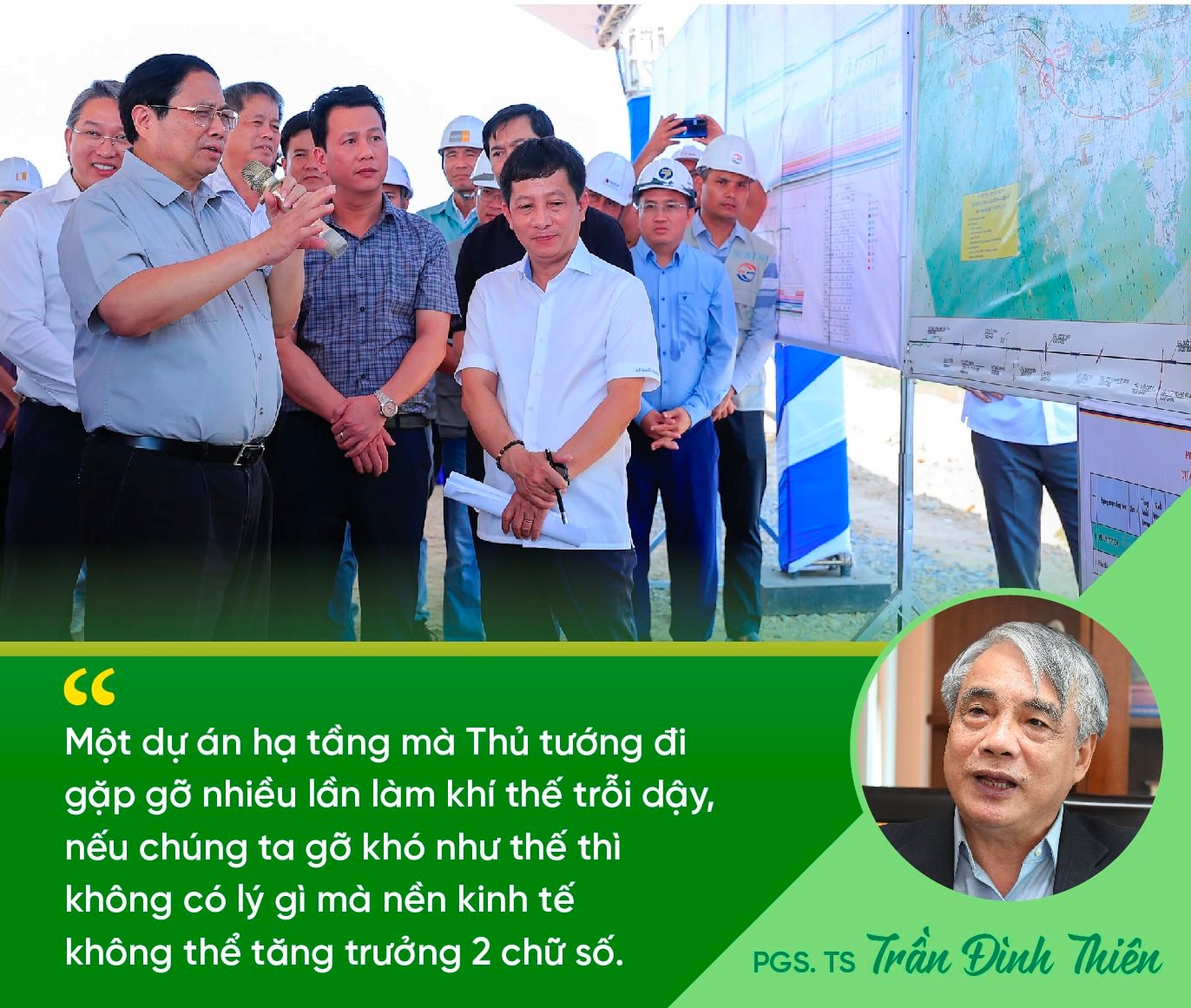
Transportation infrastructure, with its mission of “paving the way,” will be the main driving force propelling Vietnam into a new era of development. As the Prime Minister emphasized, “We cannot achieve the development goals set for 2030 and 2045 without achieving double-digit growth annually in the coming decades. And we can achieve double-digit growth if we remove institutional barriers and bottlenecks and unlock the full potential of social resources.”
Similarly, Associate Professor Dr. Tran Dinh Thien shared, “If we can resolve the difficulties of an infrastructure project that the Prime Minister has visited multiple times, there is no reason why our economy cannot achieve double-digit growth.” With this determination, the two North-South expressway projects are laying the foundation for a sustainable, modernized, and evenly developed economy.
Minister Tran Hong Minh Urges Expediting Construction of 8 Rest Stops on the North-South Expressway
“Vietnam’s transport sector is abuzz with Minister Tran Hong Minh’s recent directive to fast-track eight business investment projects for rest stops along the North-South Expressway in the East. This directive, sent to the Vietnam Expressway Corporation, the Vietnam Road Administration, and relevant project management units and investors, signals an exciting development for the country’s infrastructure and travel industry.”
The Soaring Cost of Lunar New Year Flight Tickets Takes Off with Families’ Bonuses
The cost of air travel during the Lunar New Year period in 2025 can be astronomical for a family of four to five. They could end up spending tens of millions of Vietnamese Dong solely on plane tickets to return to their hometown for the festive season.


